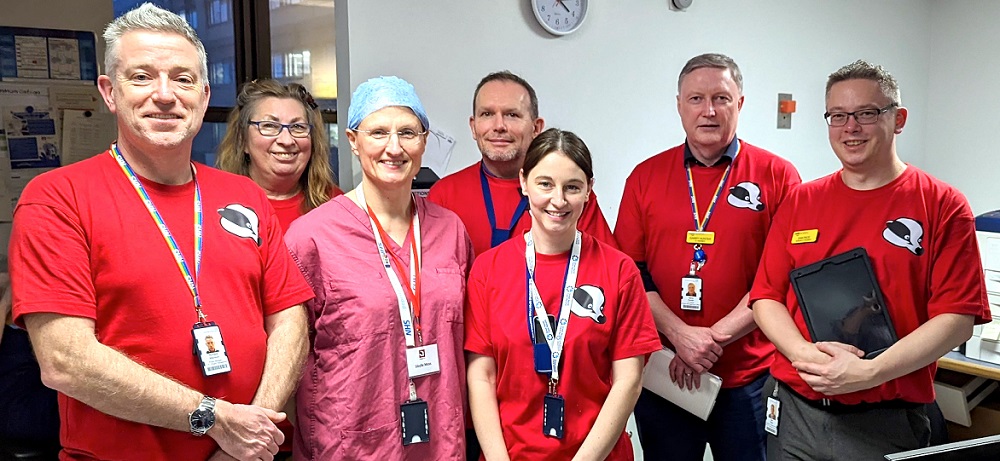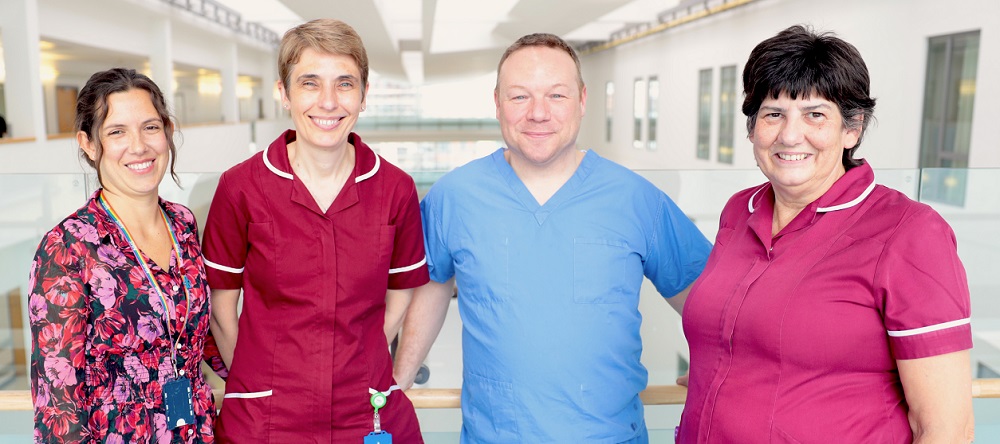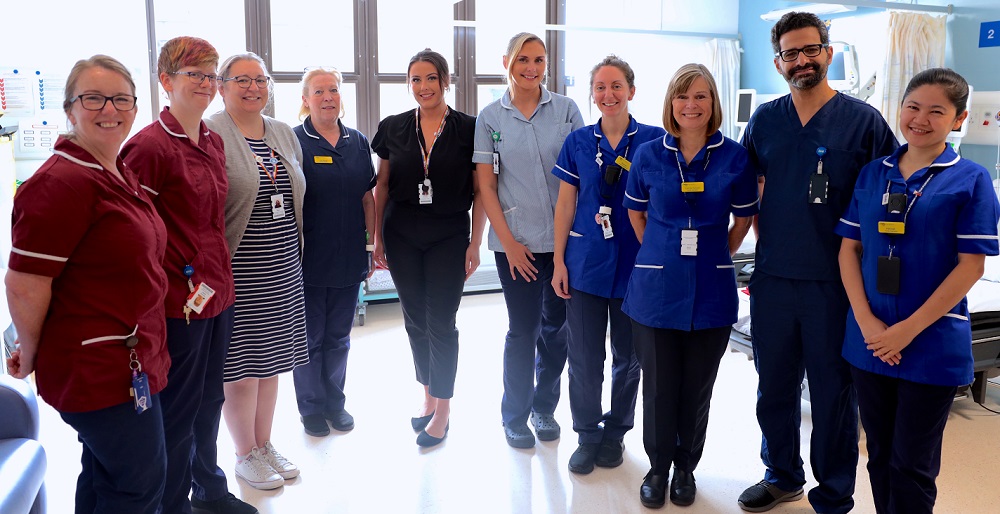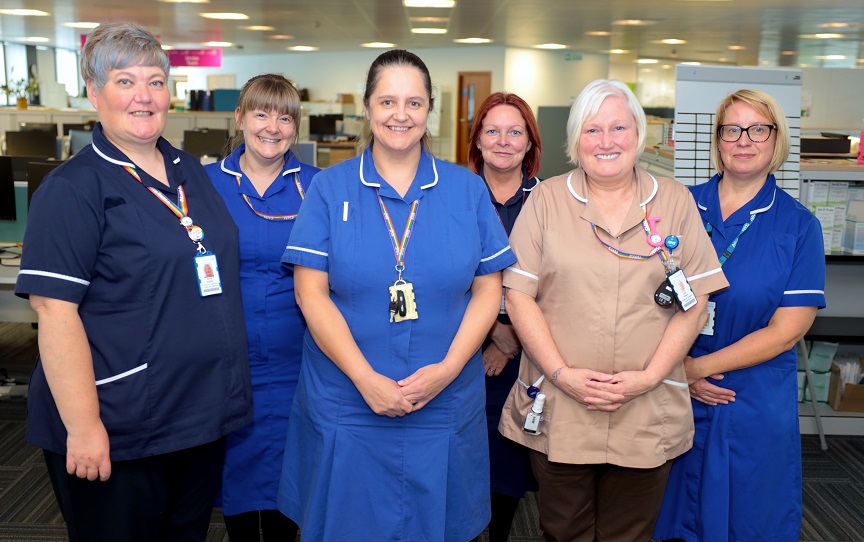And the winner is…
BadgerNet Maternity Support Team

After almost a year of ‘blood, sweat and tears’ in the planning and development stages, this team successfully rolled out BadgerNet – a new innovative electronic patient record for patients and staff – in January, replacing maternity paper records used across Newcastle Hospitals and its community settings.
A true example of collaborative working between clinical and support services, this system has positively improved and streamlined maternity pathways, as well as the patient’s digital journey.
For staff, it allows real time digital recording and archiving of CTG traces, direct links between maternity and neonatal systems for fast-tracking and sharing information, access to lab results and scans as well as ‘real time’ patient information.
While patients can access a portal ‘Badger Notes’ providing them with greater visibility and control of their personalised maternity care – either through an app or desktop browser – with access to their maternity notes, leaflets and online resources.
The result, a huge benefit for everyone and plans are now underway to roll this out in neonates.
Finalists – Newcastle Centre for Bowel Disease Research Team

This small, dedicated team provide a novel programme of hybrid working which has won grants and awards – regionally and internationally resulting in research which has delivered significant financial, reputational and experiential insights for the trust.
Their work is now the basis of major future commercial research bids and modernising and changing the way that bowel disease care is delivered for this under-studied population.
Through their model to assess a new innovative telemedicine service linked to a stoma device representing Coloplast Ltd’s vision of the future of stoma care, the team created an innovative, global first for the company, involving local and national patient hybrid recruitment solutions and demonstrating exceptional cross-organisational partnerships between health, research and industry.
With the studies soon to be published, the team hopes to inspire more groups in the North East to think innovatively about how they use novel and innovative ways to work across sectors and organisations and, in turn, to deliver and enhance our reputation for world class research here in the North East.
Finalists – Stroke Research Team

There are many people that make up the delivery of 24/7 research on the stroke unit and this team’s
achievements have not only been instrumental in transforming care across the region and beyond but make them a force to be reckoned with in this field.
One of their most significant challenges has been the randomization of stroke patients into hyper-acute trials as these are people dealing with a life-changing event and in need of immediate treatment (often emergency surgery), so time is critical.
The team has been able to seamlessly incorporate consenting to research into treatment plans, enabling patients to have access to cutting-edge treatments even in theatre while maintaining the highest standards of care.
Other achievements include being the first to recruit a stem cell trial stroke patient in Europe while the team’s nurse-led research in cardiac monitoring has significantly contributed to the development of a more efficient and effective patient screening process, which in turn has improved outcomes.
As one of the best performing stroke research units in North East and North Cumbria for the last five years and a top performer in commercial portfolio research, the team’s results are a testament to their unwavering commitment and remarkable strides to improving stroke care through research.
Finalists – Hospital Admission Avoidance (HAT) Team

Newcastle Hospitals, like many busy NHS trusts, has huge numbers of patients admitted onto wards either as emergencies or for their planned care but in recent months high bed capacity and long waits in the Emergency Department have been a significant challenge.
In response, a team of highly-skilled community nurses were assembled to form the HAT team, working collectively to try and prevent avoidable hospital presentations and admissions. Existing referral pathways to other services were also examined to enable quicker referral to the community rapid response team for review and care.
Through their pilot work with patients in their own homes and care homes, effective triage and
intervention outcomes and safety netting onward referrals, their impact has been huge.
In the first 59 days, over 1,000 patients were triaged with 900 able to be cared for and treated in their homes / care home and of the 100 triaged to ED, only 1 had a 0 length of stay, demonstrating the team’s effectiveness. Data relating to their rapid response element of service provision to care homes also showed a significant improvement / increase in response times.
It’s now hoped a substantive team will be created to support and extend the focus of HAT, providing
initially a 12-hour, 7-day a week service, to meet the requirements and challenges of complex care, that can and should be managed in a community setting.